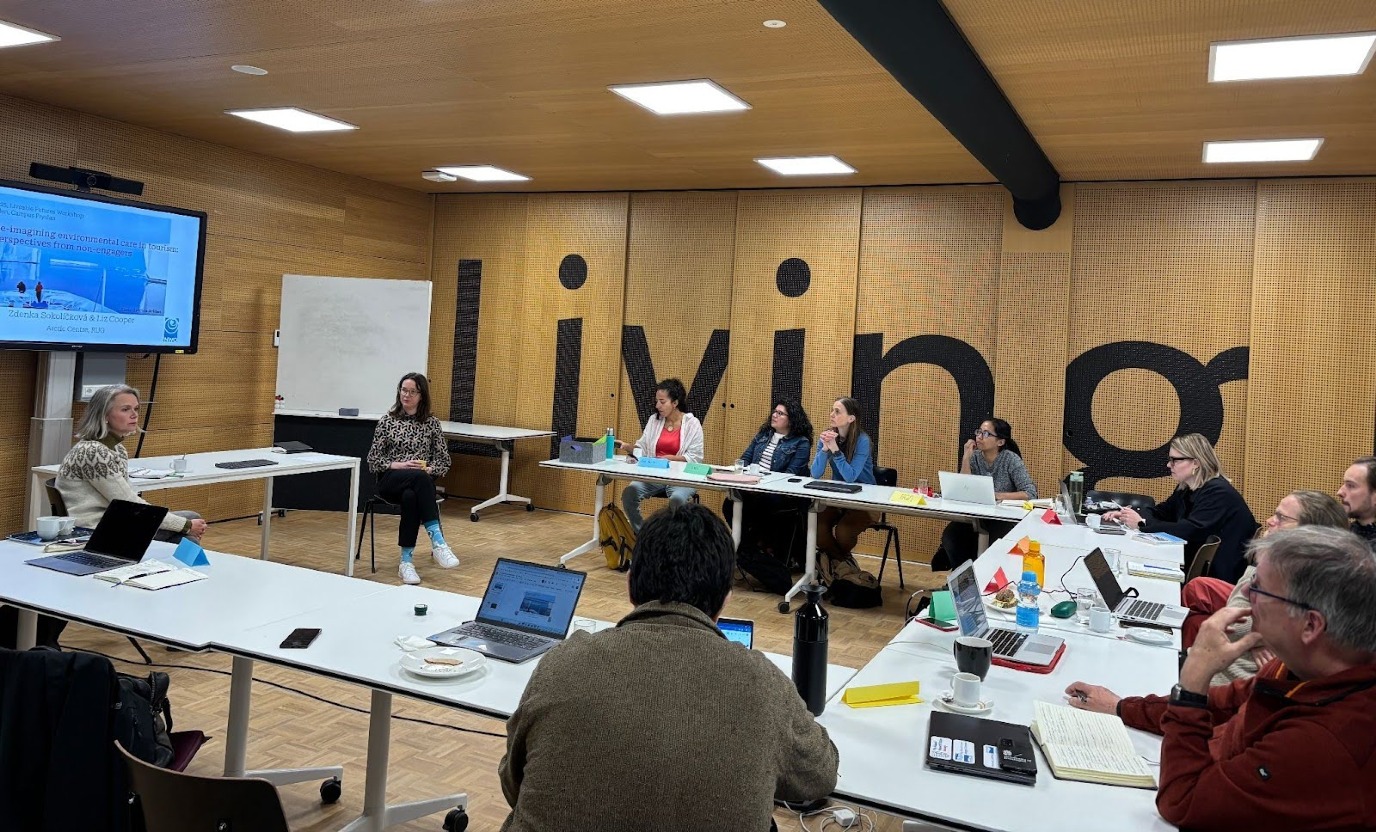Liveable Futures Workshop: Interfaces and Knowledge
| When: | We 09-04-2025 |
| Where: | Campus Fryslân |

Programme for the Day |
|
|
10.30 - 10.45
|
Arrival & Coffee
|
|
10.45 - 12.00
|
Presentation
|
|
12.00 - 13.30
|
Working Lunch
|
|
13.30 - 15.00
|
Presentation & Workshop
|
Visitors and speakers joining from the Arctic Centre, University of Groningen
-
Zdenka Sokolickova, author of The Paradox of Svalbard: Climate Change and Globalisation in the Arctic;
-
Elizabeth Cooper is working on the GUIDE-BEST project;
-
Jonathan Spellenberg is working on the TRACES project;
-
Rachel Innes is employed by the ANT-MICI project.
Part 1. Presentation: Contaminating Encounters
|
Format
|
A presentation of the development of the Contaminating Ecounters interface
|
|
Presenters
|
Zdenka Sokolickova, Anne Beaulieu, Maarten Loonen
|
Abstract
Environmental knowledge production foregrounds some aspects and elides others, with implications for the constitution of liveable futures. The SVALUR project explored the intertwinement of scientific environmental knowledge and embodied everyday knowledge existing in the high Arctic archipelago of Svalbard, and experimented with different ways of performing the resulting insights. An example of a platform inviting an exploration of three key phenomena – layeredness of knowledge, uncertainty and (in)visible collaborations – is the interactive interface Contaminating Encounters (https://www.contaminating-encounters.nl). The interface narrates the experience of the Dutch scientific expedition to Edgeøya in 2022 (aiming to generate knowledge relevant to times of ecological urgency) through the voice of an ethnographer and the material created during the expedition. The study is guided by the question “How does scientific knowledge relate to other ways of knowing when tackling uncertainty?” Our contribution further speaks to the question of “How can digital technologies contribute to an understanding of knowing?” We focus on collaborative ways in which knowing emerges, its multifaceted character and situatedness. The interface delves into themes such doubting, improvisation, contamination, moral dilemmas, hierarchies and power structures, ways of remembering, the practice of separation, and rhythms. Situated in scholarly work from the fields of STS and environmental anthropology orbiting around different ways of knowing, the article reflects on the power of an experimental interface to serve as a contaminating encounter, and to take on the challenge of communicating the messiness of the everyday against the backdrop of ‘scientific’ world-ordering expectations.
Part 2. Working Lunch: Ethnographic methods
An opportunity to exchange about ethnographic methods in our research in an informal setting. Lunch provided.
Part 3. Presentation & workshop: Moral stances and climate change in the context of tourism in Antarctica
|
Format
|
Short presentation on ‘quit-guides’, and meeting colleagues who are working on tourims/moral issues around climate
|
|
Presenters
|
Zdenka Sokolickova and Elizabeth Cooper
|
Excerpt from abstract submitted to Critical Tourism Studies conference, June 2025:
This paper takes a critical look at how we imagine environmental care in tourism (Martin et al., 2015; Papamattheakis, 2023; Cañada, 2024) questioning whether the concept of environmental care should be expanded beyond considering how we interact with natural environments, to encompass also whether we should interact with them. Thus, we contemplate whether choosing not to engage with a natural environment can be an act of environmental care. We explore this proposition by incorporating voices and perspectives of ‘non-engagers’ into the tourism literature. Using former Antarctic tour guides as a case, we conceptualise the decision to stop engaging in Antarctic tourism as high-impact (because it involves stopping a carbon-intensive behaviour) and high-effort (because it usually entails substantial personal sacrifice for Antarctic tour guides to quit).
